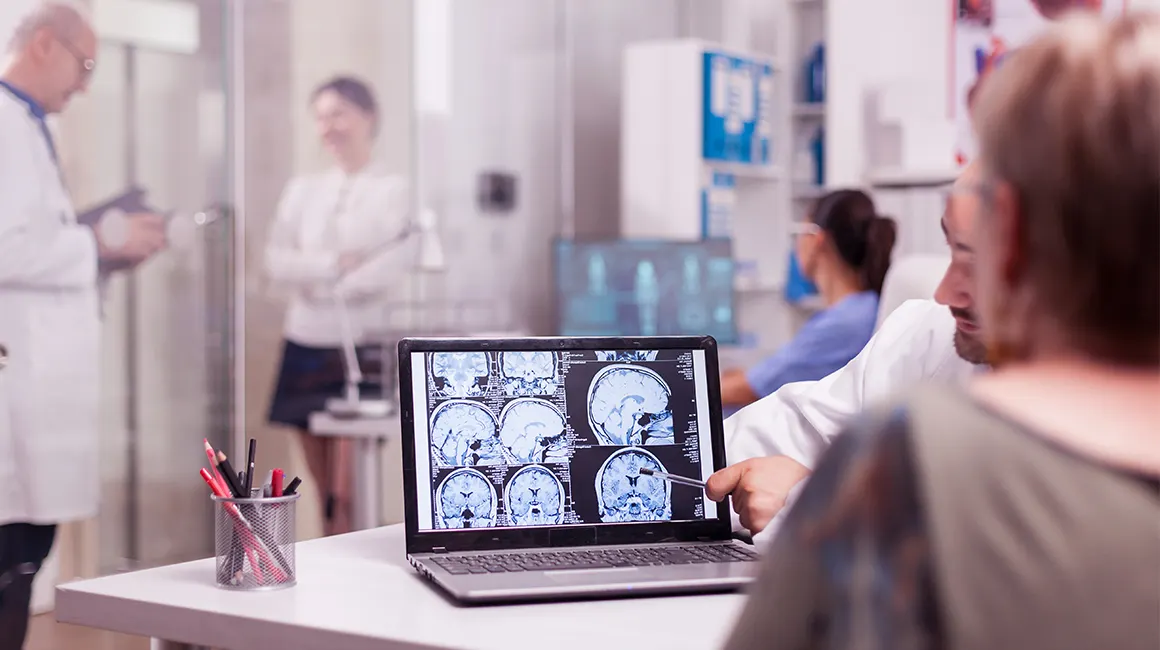
Sleep Study

Sleep Study
A sleep study, also known as a polysomnography (PSG), is a non-invasive test used to monitor and record various physiological activities while a person sleeps. The test is typically performed in a sleep laboratory or at home with portable equipment.
A sleep study is used to:
- Diagnose sleep disorders, such as:
– Sleep apnea
– Insomnia
– Narcolepsy
– Restless leg syndrome
– Periodic limb movement disorder - Monitor sleep patterns and stages (REM and non-REM sleep)
- Evaluate sleep quality and duration
- Identify potential sleep disruptions, such as:
– Snoring
– Sleep talking
– Sleepwalking
– Nightmares - Guide treatment and therapy for sleep disorders
The test involves:
- Attaching sensors to the head, face, and body to monitor:
– Brain waves (EEG)
– Muscle activity (EMG)
– Heart rate (ECG)
– Breathing rate and oxygen levels
– Leg movements - Recording video and audio signals
- Analyzing the data to identify sleep patterns and potential disorders
Sleep studies are typically performed by a sleep technician or a sleep specialist (pulmonologist, neurologist, or sleep medicine specialist). The test is painless and non-invasive, and the results help healthcare professionals diagnose and treat sleep-related disorders.
Note: While sleep studies are not directly related to dentistry, they can help identify sleep disorders that may be related to oral health issues, such as sleep apnea and teeth grinding (bruxism). Dentists often work closely with sleep specialists to ensure overall patient well-being.


